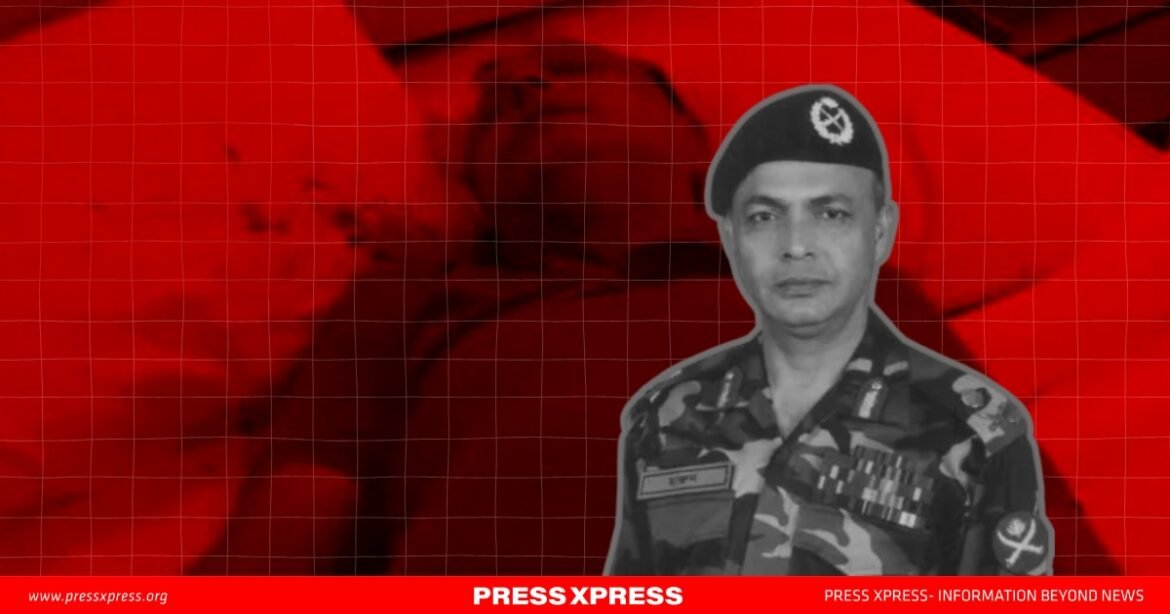The sudden death of former army chief and freedom fighter Lt General (Retd) M Harun-Ar-Rashid Bir Pratik in a room at Chattogram Club on Monday has sparked widespread speculation amid Bangladesh’s volatile political climate.
According to Kotwali police station’s Officer-in-Charge, Abdul Karim, the body was sent to Chattogram Medical College Hospital for an autopsy, and the exact cause of death will be determined after the report is received. Authorities were notified, and the body was recovered around noon.
Family sources suggest that the 78-year-old former army chief might have succumbed to a brain hemorrhage, as he had been battling several health issues. Chattogram Metropolitan Police (CMP) Deputy Commissioner (South) Md Alamgir Hossain reported that Gen Harun arrived in the city on Sunday afternoon and checked into a VIP room at the club at 4 p.m. After an hour, he left the club and returned at 10:45 p.m.

Mohammad Rafiqul Amin, Managing Director of Destiny-2000 Limited, shared that the two had traveled to Chattogram to appear in court on a case. “As Gen Harun missed his scheduled court appearance on Monday, we tried to contact him, but his phone went unanswered. When club officials checked his room, they found him dead,” Amin explained. He also mentioned that the general had planned to fly out the next morning.
Gen Harun became the president of the controversial Destiny Group in 2006, and in 2012, he was arrested on charges of fraud and irregularities related to the company. He was later sentenced, but in 2022, he was granted bail on medical grounds.
This year, Rafiqul Amin launched a new political party, the “Bangladesh A-Am Janata Party” (BAJP). Recently, the military arrested Major MD Sadequl Hoque on allegations of aiding the Awami League to reorganize and train its activists. However, his family denies the claims, stating that Major Hoque had been battling various health issues.
A Storied Life
Gen Harun, born in 1948 in Hathazari, Chattogram, was awarded the Bir Pratik for his bravery during the Liberation War, Bangladesh’s third-highest military honor. He was commissioned as a lieutenant in the Pakistani Army in 1970 and later served as the Chief of Army Staff from December 2000 to June 2002.
Following his retirement, Gen Harun became outspoken about the atrocities committed by war criminals and accused Pakistan of endangering Bangladesh’s national security. He also served as the country’s high commissioner to Australia and worked for the United Nations.
During the 1971 Liberation War, Lt Harun led his company in the brutal Battle of Kasba, where the 9th East Bengal Regiment, under his leadership, captured the town from the Pakistani forces. He later fought in the hills of Latumura in the Chittagong Hill Tracts. The operation was coordinated by the Indian Army, and Lt Harun’s company was tasked with capturing the village of Chandrapura, which helped facilitate the joint forces’ advance to Latumura.


